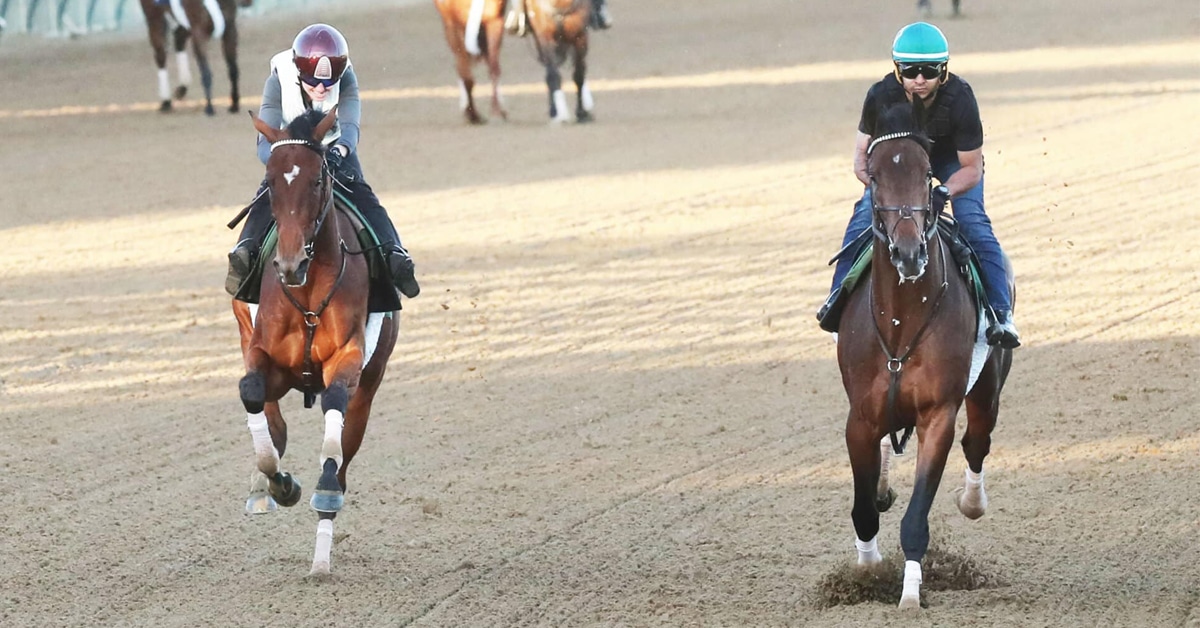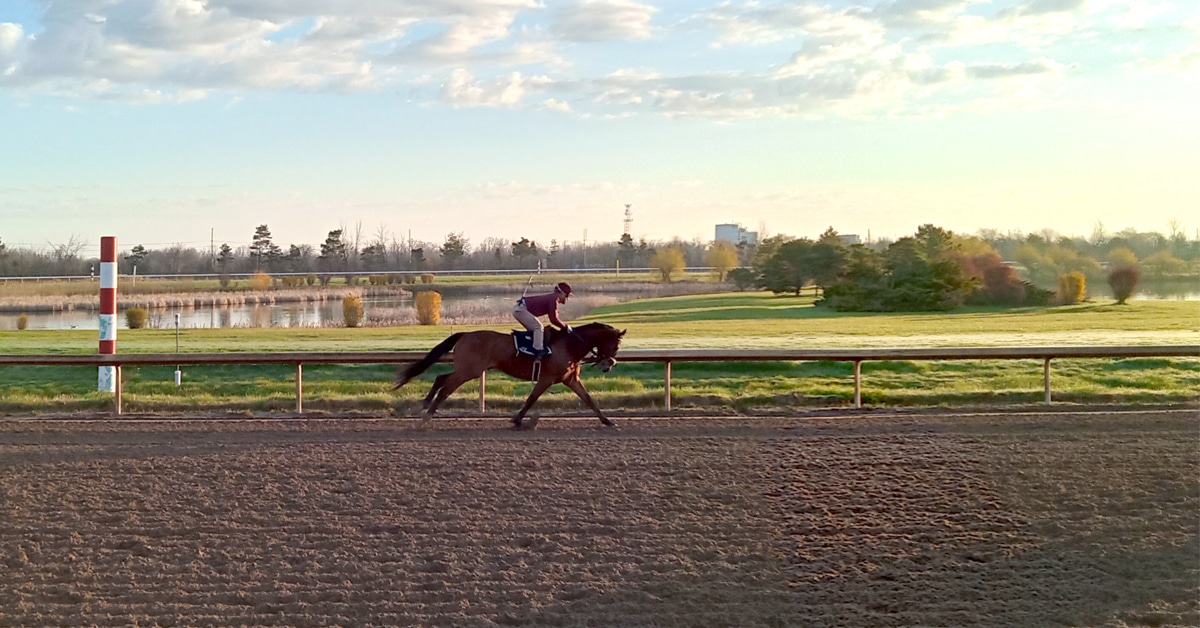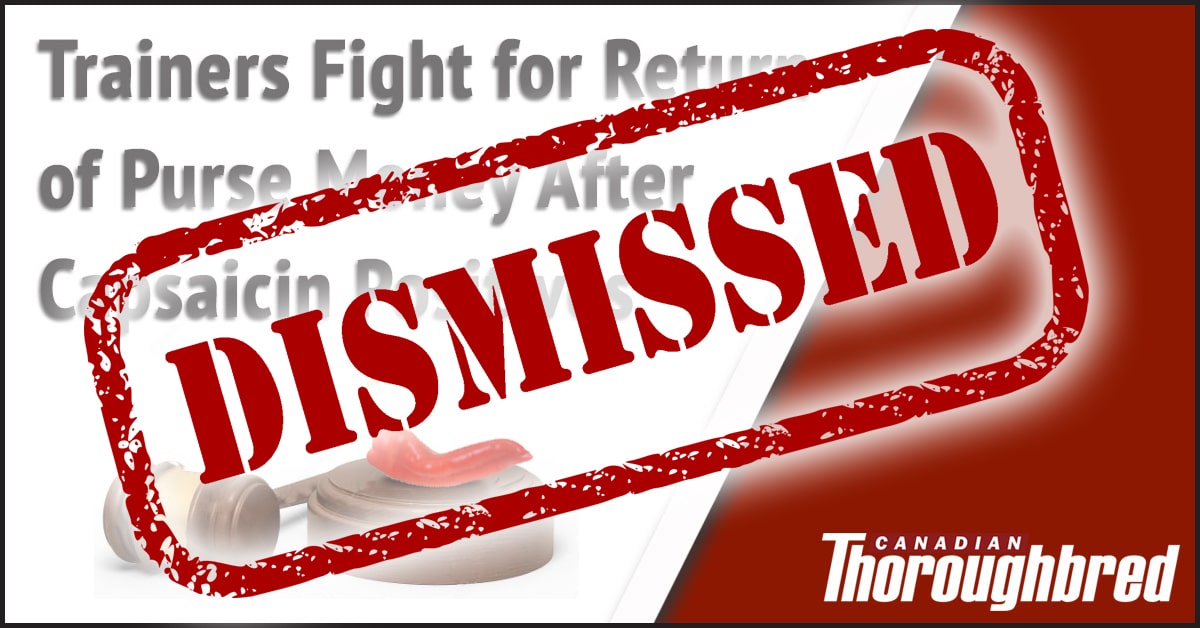The case of the trainers who were appealing their positive capsaicin certificates has been dismissed by the Horse Racing Appeal Panel (HRAP) before any evidence was heard.
The Alcohol and Gaming Commission of Ontario (AGCO) successfully argued that HRAP does not have jurisdiction to waive or set aside the finding of a positive test. As a result, HRAP dismissed the trainers’ appeal without a hearing.
According to the appellants lawyer, however, they were not asking for a waiver.
“I didn’t ask for a waiver as they don’t have that power,” agreed Frank Roth, who represents the group of trainers. “What was asked was to grant the appeal which would eliminate the violations and also seek a grant of the appeal with respect to the unplacing of the horse which would result in the return of the original finish of the race without a redistribution of the purse.”
Roth had planned to present evidence showing precedent for his request from a 2015 case in which trainers were appealing a positive test for methamphetamine. In that case, the Panel found that there was presence of drugs but under the circumstances the Panel exercised its right to overturn the violation:
“For this reason the Panel is invoking its absolute discretion under Rule 24.3 to allow the appeals …. To do otherwise would be to defy the reasoning of the Divisional court in Shakes wherein it is determined that the imposition of absolute liability must be rationally supported and in the public interest.”
The AGCO further argued that because the trainers have Absolute Liability HRAP has no jurisdiction to hear the appeal. The principle of Absolute Liability holds that it doesn’t matter how the positive occurred the trainer is responsible. HRAP has, however, heard several cases in the past involving drug positives and purse distributions where Absolute Liability would have also applied.
Another piece of evidence that Roth would have introduced was the AGCO’s own request to the Canadian Pari Mutual Agency (CPMA) to have the Certificates of Positive Analysis rescinded. The CPMA and the Depute Minister of the Department of Agriculture and Agri-Food, however, confirmed that the CPMA is not able to rescind a Certificate of Positive Analysis after the Certificate has already been issued.
The regulator’s letter also acknowledges the “unique circumstances” of the positive tests, that the testing levels for the drug were changed, and that subsequently “all but two of those 22 Ontario Certificates would have not have been issued under the new criteria.”
Given all of these extraordinary circumstances, it’s unclear why the AGCO would not invoke rule 24.03.02:
The Registrar may, in his or her absolute discretion, at any time waive the breach of any of the Rules, which waiver or breach the Registrar does not consider prejudicial to the best interests of racing. The Registrar’s waiver of or refusal to waive a rule is not subject to appeal.
In fact, during a motion hearing in June, the AGCO agreed that it could make use of this rule but it has chosen not to.
The trainers are frustrated by their experience.
“They jerked us around for a year only to tell us that we have no right to appeal,” said trainer Nick Nosowenko.
“What they’ve done is wear us down. We started with 42 positives and are left with just four people with six positives because the rest can’t afford to continue to fight.
“All the time and money we spent on pre-hearings, motions, investigations, organizing witnesses and now all of a sudden there is no trial, ” said Nosowenko. “I just don’t get it.”
Roth is also disappointed with the result.
“I believe the decision was incorrect in law and don’t know what we are going to do next,” said Roth about the possibility of seeking further recourse with an appeal to the Divisional Court of Ontario. “I certainly believe the evidence should have been heard.”
More from Horses:






